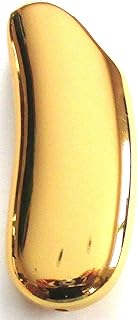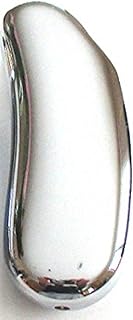BIC Lighter vs. Other Lighters: A Breakdown
BIC lighters are ubiquitous, but are they really the best? Let's compare them to other types:
BIC Lighter:
Pros:
* Affordable: They're incredibly cheap, making them disposable and easy to replace.
* Reliable: Known for their consistent flame and simple operation.
* Durable: Can withstand some drops and rough handling.
* Widely Available: Found nearly everywhere, from gas stations to grocery stores.
Cons:
* Limited Flame Control: No adjustments for flame size or intensity.
* Disposable: Not environmentally friendly, contributing to landfill waste.
* Simple Design: Lacks features found in other lighters, such as wind resistance or adjustable flame.
Other Lighter Types:
1. Zippo Lighter:
Pros:
* Durable: Known for their rugged construction and long lifespan.
* Refillable: Can be refilled with lighter fluid, making them more sustainable.
* Adjustable Flame: Allows you to control the flame size for different purposes.
* Stylish & Customizable: Available in various designs and can be personalized.
Cons:
* Expensive: More costly than BIC lighters, both upfront and for refilling.
* Bulkier: Larger and heavier than BIC lighters, making them less pocket-friendly.
* Less Convenient: Requires refilling and occasional maintenance.
2. Torch Lighter:
Pros:
* Stronger Flame: Provides a powerful flame ideal for lighting cigars, pipes, or starting campfires.
* Wind Resistant: Can withstand even strong winds, making them great for outdoor use.
* Adjustable Flame: Allows for precise control over the flame size.
* Refillable: Can be refilled with butane gas for long-term use.
Cons:
* Less Affordable: More expensive than BIC lighters, but cheaper than Zippo lighters.
* Less Portable: Can be bulky and inconvenient to carry around.
* Safety Concerns: Requires careful handling due to its powerful flame.
3. Electric Lighter:
Pros:
* Environmentally Friendly: Recharges using electricity, reducing waste.
* Safe: Produces a flameless, windproof ignition.
* Versatile: Can be used to light candles, incense, or other flammable materials.
Cons:
* Rechargeable: Requires charging, which can be inconvenient.
* Limited Usage: Not ideal for lighting cigarettes or other materials requiring a traditional flame.
* Can Be Expensive: Some models are significantly more expensive than other types.
4. Plasma Lighter:
Pros:
* Windproof: Produces an electric arc that's unaffected by wind.
* Rechargeable: Can be recharged via USB, making it convenient.
* Environmentally Friendly: Eliminates the need for disposable lighters.
Cons:
* Less Reliable: Can be prone to malfunctions in cold weather or extreme temperatures.
* Limited Flame Control: Doesn't offer adjustable flame intensity.
* Can Be Expensive: Some models are significantly more expensive than traditional lighters.
The Bottom Line:
The best lighter for you depends on your needs and budget.
* For casual, everyday use, BIC lighters offer affordability and reliability.
* For long-term use and customizable style, Zippo lighters are a classic choice.
* For powerful flames and outdoor use, torch lighters are a great option.
* For environmentally friendly and safe usage, electric lighters are a good choice.
* For windproof and rechargeable convenience, plasma lighters are an alternative.
Ultimately, consider your priorities and choose the lighter that best suits your needs.


